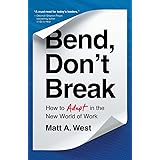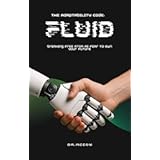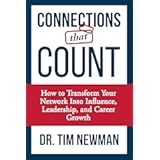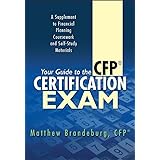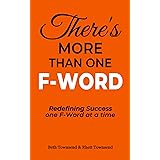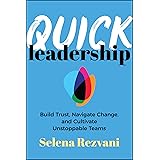The journey through a professional career often feels like navigating a complex, ever-shifting landscape. Concerns about growth, fulfillment, and adapting to change are frequently encountered by individuals at various stages of their working lives. When reflecting on the valuable perspectives shared by industry leaders, such as those presented in the accompanying video with Jamie Dimon, it becomes clear that foundational principles remain paramount for enduring success. This career advice transcends specific roles, offering timeless guidance for anyone aiming to thrive in the dynamic business environment of today and tomorrow.
Embracing the Foundation of Hard Work and Diligence
A persistent dedication to hard work is often cited as a non-negotiable component of achievement. The notion of a “get-rich-quick” scheme is frequently discredited in established professional circles; sustainable success is typically cultivated through consistent effort. It is generally understood that immediate gratification rarely manifests in substantial, long-term career gains. Instead, a disciplined approach, characterized by a willingness to invest significant time and energy, is considered fundamental for building a robust professional foundation.
This commitment to diligence extends beyond merely completing assigned tasks. It involves proactively seeking opportunities to contribute, developing expertise, and consistently exceeding expectations. Consequently, individuals who consistently demonstrate a strong work ethic are often identified for advancement and entrusted with greater responsibilities. The cumulative effect of sustained effort progressively shapes one’s professional trajectory, establishing a reputation for reliability and effectiveness within any organization.
Cultivating a Mindset of Continuous Learning
The imperative for lifelong learning is consistently emphasized by successful professionals. In an era marked by rapid technological advancements and evolving market demands, stagnation can quickly render skills obsolete. It is understood that intellectual curiosity and an active pursuit of knowledge are vital for remaining relevant and competitive. Jamie Dimon exemplifies this principle by reportedly consuming a significant volume of information, including “four or five newspapers every morning” and “tons of stuff” sent to him, illustrating a profound commitment to staying informed.
Learning is not confined to formal education or structured training programs. Valuable insights are often acquired through diverse channels, including interactions with clients, observations of competitors, and engagements with small business owners. Even seemingly minor observations, such as a casual question about a process, can spark significant operational improvements. Innovation itself is frequently described not as a singular “aha” moment, but rather as the incremental aggregation of numerous small advancements. The development of the iPhone, for instance, was a synthesis of existing technologies like 3G, advanced glass, semiconductors, and improved batteries, rather than a single revolutionary invention.
Strategies for Expanding Knowledge
- Proactive Information Consumption: Regularly engage with industry publications, research papers, and news sources.
- Experiential Learning: Actively seek lessons from practical experiences, client feedback, and competitor strategies.
- Mentorship and Networking: Leverage insights from experienced professionals and diverse peer groups.
- Self-Reflection: Regularly evaluate personal and professional practices to identify areas for improvement and adaptation.
The Importance of Respect and Ethical Conduct
Interpersonal dynamics play a critical role in professional longevity and influence. Treating colleagues, subordinates, and superiors with genuine respect is frequently cited as an indispensable quality. This principle, often articulated as the Golden Rule, forms the bedrock of positive workplace cultures. A respectful approach fosters trust, facilitates effective collaboration, and cultivates an environment where individuals feel valued and heard.
Fairness and transparency in interactions contribute significantly to establishing one’s credibility. When individuals perceive that they are being treated equitably and with consideration, their engagement and loyalty are often enhanced. Consequently, a leader’s ability to inspire and motivate is deeply intertwined with their demonstrated integrity and their consistent application of respectful principles within the organizational framework. These human elements often outweigh technical prowess in fostering a truly cohesive and productive team.
Navigating Career Flexibility and Personal Well-being
Modern careers frequently necessitate a degree of flexibility, particularly concerning job roles and financial considerations. A willingness to adapt to new opportunities, even if they initially involve a perceived step backward in income, can sometimes prove to be the most judicious long-term strategy. These shifts can provide invaluable learning experiences, expose individuals to different organizational cultures, or align them with more personally fulfilling work. It is often recommended that professionals prepare to undertake various roles throughout their working lives, embracing change rather than resisting it.
Furthermore, holistic well-being is increasingly recognized as a crucial determinant of professional efficacy. Employees are encouraged to prioritize their physical, mental, and spiritual health, alongside their family and social connections. Neglecting these aspects can significantly diminish productivity and overall job satisfaction. While organizations can offer supportive frameworks, the ultimate responsibility for maintaining this balance rests with the individual. It is often observed that professionals who effectively manage their personal lives and health tend to exhibit greater resilience and focus in their professional endeavors.
Integrating Work and Life Effectively
The concept of “work-life balance” is sometimes reframed as “work-life integration,” acknowledging that personal and professional spheres are intertwined. This necessitates conscious scheduling and prioritization. For instance, reserving time for exercise, as practiced by Jamie Dimon during international travel, ensures that physical health is not compromised by professional demands. Effective personal management allows individuals to attend to family commitments, such as a child’s baseball game, or to take necessary spiritual retreats without feeling overwhelmed. It is noteworthy that while some individuals often describe themselves as perpetually “frenzied,” many others in identical roles manage to maintain peace and ease, successfully allocating time for their families and personal needs. This highlights that effective time management and self-prioritization are often within an individual’s control, rather than solely dictated by external circumstances.
Distinguishing Effective Management from Authentic Leadership
Successful organizational performance relies on robust management practices. This involves a systematic approach to execution, characterized by diligent follow-up, strict discipline, meticulous planning, thorough analysis, and an unwavering reliance on facts. It requires the strategic placement of competent individuals within teams and a commitment to eliminating bureaucratic inefficiencies. These operational competencies are indispensable for achieving organizational objectives and ensuring consistent output.
However, true leadership transcends mere managerial effectiveness. It is not solely about possessing the highest intellect or the most charismatic personality, although these attributes can be beneficial. Authentic leadership is fundamentally built upon the foundation of trust, care, and integrity. Employees are more inclined to dedicate their efforts to a leader they trust—one who is perceived as genuinely prioritizing the client’s needs, the broader country’s welfare, or the collective good over personal gain. Conversely, a leader who is perceived as selfish, quick to assign blame, and eager to claim credit will struggle to inspire loyalty or foster a positive working environment.
Core Attributes of Authentic Leadership
- Humility: Acknowledging one’s limitations and valuing the contributions of others.
- Openness: Being receptive to new ideas, feedback, and diverse perspectives.
- Fairness: Ensuring equitable treatment and opportunities for all team members.
- Authenticity: Operating with sincerity and consistency between words and actions.
These qualities of humility, openness, fairness, and authenticity are pivotal in creating a culture where people genuinely desire to contribute their best. This approach to leadership is a distinct methodology for ensuring that effective management practices are not only implemented but are also underpinned by a strong, positive, and trust-based organizational ethos, which ultimately supports long-term career growth and satisfaction.


